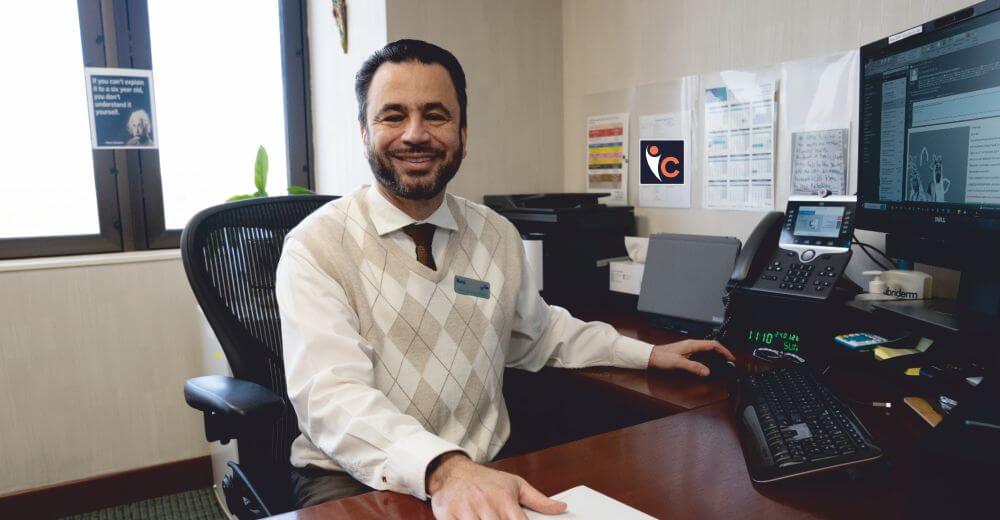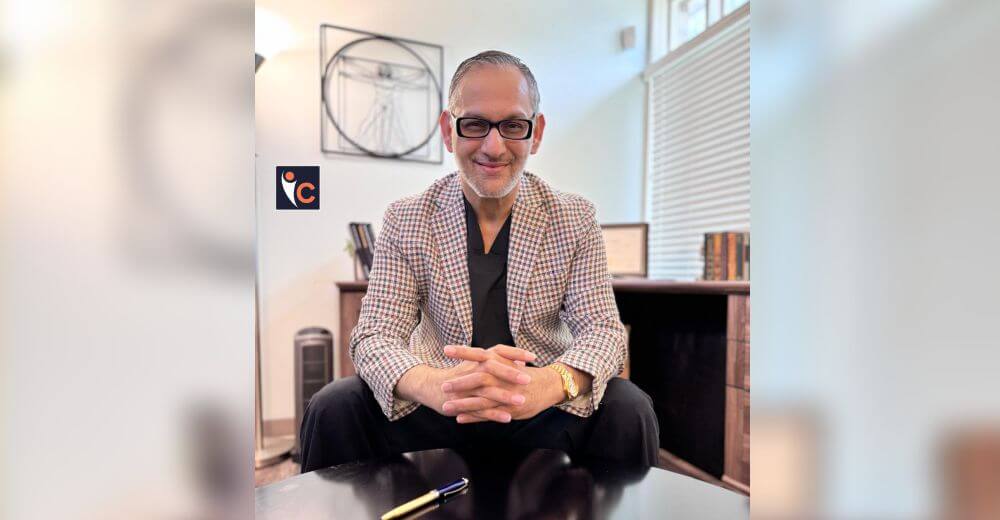True to its name, 360 Behavioral Health offers a comprehensive range of services that support clients at every stage of their behavioral health journey. The organization sets itself apart through strategic decisions that enhance service delivery. While many providers offer ABA therapy, they take an extra step by crafting individualized treatment plans deeply grounded in the scientific method, aligned with each client’s specific objectives.
Going beyond mere adherence to industry norms, 360 Behavioral Health aims to be at the forefront of ethical practice. Their commitment to maintaining an inclusive and secure environment led to the establishment of a dedicated DE&I (Diversity, Equity, and Inclusion) Committee.
Leading the charge in the development and implementation of behavioral health services at 360 Behavioral Health is Rob Marsh, CEO. With a notable 15-year career in behavioral health, Rob Marsh has led various companies in Texas as their CEO, while also serving as an active advocate for behavioral health and autism.
Insights Care had the privilege to interact with Rob, gaining enlightening insights into his career and the organization.
Let’s take a look at the inspiring story of 360 Behavioral Health and Rob’s role in taking the organization forward:
A Virtuous Vision
360 Behavioral Health is committed to providing high-quality, evidence-based treatments tailored to the unique needs of its clients.
Their mission centers on effecting meaningful change through coordinated behavioral and mental healthcare. This mission not only outlines their current endeavors and purpose but also acts as a “true north” that points to their future.
Their vision is to stand as the foremost provider of compassionate, comprehensive behavioral and mental healthcare throughout a lifetime. This vision acts as a benchmark, one that they strive to meet daily in every interaction and decision.
The organization thrives on a bedrock of key values, each integral to the fabric of its corporate culture.
These values serve as the guiding principles that shape the organization and all its pursuits. They are non-negotiable, and 360 Behavioral Health is willing to make sacrifices to uphold them.
- Teamwork: They believe in the power of working together, where everyone’s contribution matters.
- Accountability: They measure and accept responsibility for their actions to build trust with all stakeholders.
- Respect: They value, listen, and treat people with dignity and professionalism, creating a safe and inclusive environment.
- Quality: They are committed to the highest standards, providing their clients with the best opportunity to achieve ideal clinical outcomes.
Becoming Part of a Noble Goal: Rob’s Journey in Behavioral Health
Rob Marsh’s career in behavioral health began nearly 15 years ago during his tenure in the senior housing industry. He discovered a substantial unmet demand for seniors with behavioral health needs. Rob collaborated with physicians, psychiatrists, nurses, and counselors to establish specialized programs within assisted living and skilled nursing facilities, resulting in improved accessibility. When an opportunity came to join a behavioral health organization, it appeared to be a perfect fit for him. He transitioned to a role at an inpatient behavioral health hospital and eventually ascended to the position of CEO for several hospitals in Texas. This extensive experience afforded him the chance to engage with a diverse array of services, including those related to substance use disorder, eating disorders, serious mental illness, residential programs, outpatient programs, and more.
Rob expresses passionately, “Autism care is something that is not only extraordinarily rewarding but also has a special place in my heart as I have family members on the spectrum and I have seen the tremendous impact the right type of autism care, particularly applied behavioral analysis, has on patients and families.” 360 Behavioral Health has been providing care for those impacted by ASD for over 20 years. So when the chance to work with such an outstanding organization doing incredible work was presented to him, he didn’t hesitate for a second. “I knew I wanted to be part of the team,” says Rob.
Tailoring Services to Meet Patients Needs
Explaining the services Rob starts by proudly saying, “Unlike many providers, we meet the patient where they are.” This means they do not confine their services solely to clinic or home settings. Instead, they tailor the plan to suit the patient’s requirements. Whether it entails providing care at home on Sundays, in a school environment, or through telehealth, they accommodate the needs of children with autism, even on holidays. Their approach revolves around prioritizing the patients’ needs rather than fitting patients into a predetermined care model.
The primary services offered by 360 Behavioral Health encompass a range of specialized treatments:
ABA-Based Behavioral Health Treatment: Based on the science of learning and behavior, Behavioral Health Treatment (BHT) services are appropriate for individuals of all ages. Customized for each individual, the programs are designed to increase functional communication, improve skills related to attention and focus, and decrease problem behaviors.
Adaptive & Functional Living: Appropriate for adolescents, young adults, and adults, this service is focused on enhancing a broad range of life skills based on individual needs to achieve a greater level of independence at home and in the community.
Social Skills: Through group practice with peers regularly, this service helps individuals cultivate the skills they need to create and maintain positive interactions with others in social situations.
Parent & Caregiver Training: Offered in an individual or group setting and conducted in the home, in our clinics, or remotely via telehealth, our program teaches caregivers valuable skills that can improve functional communication and cooperative behavior.
Personalized Assistance & Respite Services: Appropriate for all ages, this service provides additional support for the individual served and allows parents or caregivers to take a break. Traditional services are appropriate for all individuals, while specialized services provide enhanced support for those with more challenging behaviors and need additional, specialized care.
Individualized Settings: Each individual served receives a customized treatment plan with services delivered in the environment most appropriate to meet their specific needs.
At 360 Behavioral Health, the personalization of treatment plans is central to their philosophy and approach. Here’s how they customize their treatments to meet individual client requirements:
In-Depth Initial Evaluations: The starting point involves an assessment using established diagnostic tools and firsthand observations.
Collaborative Objective Formation: After the initial diagnostic phase, the cross-functional team engages with the family to identify tailored and quantifiable objectives.
Flexible Program Structuring: They build treatment plans with adaptability in mind, allowing them to make course corrections as needed.
Team-Based Approach: The treatment plans involve a variety of professionals, each contributing their expertise to different facets of the client’s developmental journey.
Support and Training for Families and Caregivers: An integral part of the individualized plans includes equipping parents and caregivers with the tools they need for consistent reinforcement in daily life settings, thus extending the benefits of their sessions.
Reassessments and Adaptations: Ongoing reviews of the treatment plan are set to gauge progress, reconsider objectives, and amend the treatment plan as needed.
Involving Families in Treatment
“Family engagement is integral to how 360 Behavioral Health operates, setting us apart in our commitment to delivering transformative care,” states Rob. They recognize that the influence of a supportive environment extends beyond the clinical setting. Here’s how they operationalize this:
- Initial Consultation: Right from the first consultation, they invite families to be part of the process, ensuring the treatment plan aligns not just with clinical best practices but also with the real-world context of the family’s lifestyle.
- Parent and Caregiver Resources: They offer comprehensive support and accessibility to resources geared towards parents and caregivers.
- Transparent Communication: They prioritize updating families on treatment milestones and shifts through ongoing, consistent reviews and progress summaries.
- Variety of Interventions: Whenever it’s conducive to the treatment plan, their therapists conduct sessions within the client’s home, facilitating an environment where family members can actively engage and participate in the therapy process as well as other treatment settings:
- Clinic
- Home
- School
- Community
- Telehealth
- Shared Decision-Making: Families are viewed as key stakeholders in the treatment plans. Their feedback is critical when modifying interventions or introducing new strategies to enhance the individual’s well-being.
- Day-to-Day Application: Families are equipped with actionable strategies that can be implemented daily, from navigating community activities to managing social interactions, ensuring that therapy’s benefits are deeply embedded into the individual’s routine.
- Resource Availability: They offer an array of resources available. This ensures that families have continual access to reliable information and support.
- Open Channels for Feedback: A constant loop of feedback is encouraged from families, helping them fine-tune their approach to meet the ever-changing needs of the client and their support network.
- Ongoing Support: The relationship with families doesn’t end post-treatment. They provide sustained support and resources to ensure that therapeutic gains are maintained and consistently built upon.
By integrating families into the treatment process at such a multi-faceted level, 360 Behavioral Health goes beyond merely treating an individual.
Staying Ahead in Autism Care
The clinical staff at 360 Behavioral Health participate in a consistent cycle of professional enhancement, including seminars, workshops, and lectures on the most recent advancements in ABA and related disciplines. Their active involvement in conferences and events specific to the industry allows them to assimilate knowledge from peer organizations and share their research, thereby promoting mutual advancement.
The chief clinical officer at the organization has published numerous studies to understand better how to optimize outcomes in autism treatment. Additionally, the recent hire of a Director of Research and Development signifies their commitment to research and future studies, whose program focuses on understanding caregiver values in ASD treatment, increasing the quality of life for autistic individuals, and empowering clinicians to serve compassionately.
Role of Diversity-Equity-Inclusion in Behavioral Health
The Diversity, Inclusion, and Equity (DE&I) Committee at 360 Behavioral Health is pivotal in shaping the organization’s ethos and operational excellence. They understand that everyone is the sum of diverse life experiences, and this realization influences their treatment methods.
Here’s how the DE&I Committee significantly enhances the standard of care at Behavioral Health:
- Enhance Representation: They aim to ensure the team mirrors the diverse groups of people they serve, from front-line staff to the executive board.
- Deepen Cultural Understanding: They integrate broad cultural perspectives into treatment plans and ongoing staff education programs.
- Push for Equitable Care: They are committed to leveling the playing field, and providing everyone with high-quality care, irrespective of their background or identity.
Impact on Service Excellence:
- Tailored Treatment: A team with diverse backgrounds enriches their approach, making each treatment plan more individually tailored and, thus, more impactful.
- Building Trust in Communities: Greater diversity within the staff fosters increased trust, especially in underrepresented communities, thereby removing barriers to crucial services.
- Culturally Sensitive Approaches: A cultural lens embedded into treatment plans ensures they respect each client’s unique values and customs, making each intervention more effective.
- Beyond Legal Compliance: The commitment to equity goes beyond just following the law; it also aligns with the broader societal principles of justice and fairness.
- High Staff Morale: An inclusive environment positively influences staff satisfaction, which, in turn, raises the quality of service delivery.
Current Efforts:
- Cultural Sensitivity Workshops: Staff undergo regular training sessions to sharpen their awareness of cultural intricacies and potential biases.
- Engaging with Local Communities: They make it a point to interact with community figures and organizations, helping them understand diverse needs more intimately.
- Policy Auditing: They periodically evaluate internal policies to validate their alignment with the organization’s commitment to equity and inclusivity.
- Performance Metrics: They closely track various key performance indicators, from the diversity of the staff to the satisfaction levels among the various demographic groups they serve.
The DE&I Committee is more than just a component of corporate strategy; it is a transformative force that elevates 360 Behavioral Health’s clinical effectiveness and resonates with the broader social commitment to inclusion and equity.
Words of Wisdom from the CEO
As someone with an extensive experience in Behavioral Health, Rob has below advice for aspiring specialists:
- Make it a point to stay current with new methodologies, technologies, and research.
- The ability to empathize with clients, engage with family members, and collaborate with colleagues can profoundly impact the quality of care you provide.
- Whether communicating with patients, teammates, or key stakeholders, effective communication cannot be underestimated—the clearer and more concise your interactions, the better patient outcomes and team dynamics results.
- The ability to work cohesively with other disciplines and departments is essential. Respect each member’s skills and insights, recognizing that collective expertise often yields the best solutions.
- With regular changes in regulations, technologies, and patient care protocols, adaptability is a must.
- Strict adherence to ethical principles is non-negotiable. Maintaining high ethical standards will earn your trust, minimize risks, and ensure the best patient care possible.
- Equip yourself with a good understanding of healthcare analytics, as it’s instrumental for informed decision-making and operational excellence.
- Achieving a sustainable work-life balance is vital for enduring success and overall well-being, especially in a demanding field like healthcare.
Rob’s Vision for the Future at 360 Behavioral Health
As more data becomes available, 360 Behavioral Health will persist in adapting its treatment programs, integrating the most current evidence-based practices for optimal care delivery. The organization is poised to broaden its services, encompassing mental health, occupational and speech therapy, along with family support groups. Furthermore, their current expansion efforts target underserved regions, affirming their commitment to ensuring that every child, regardless of their residence in a rural area, has access to essential services.















